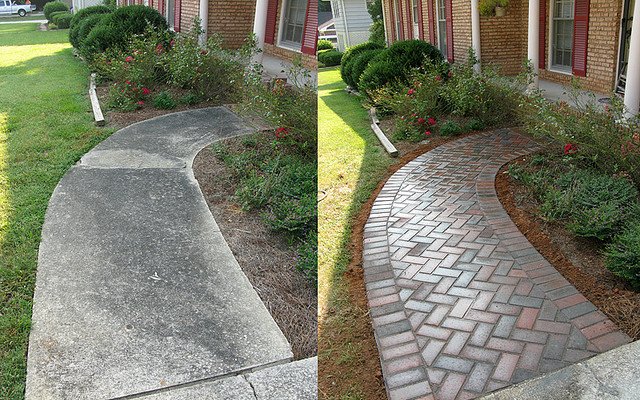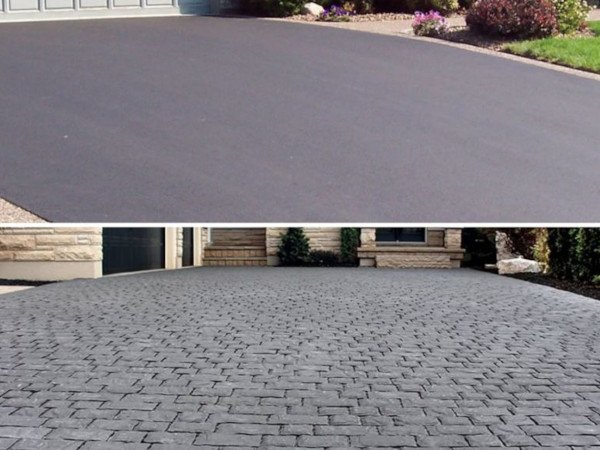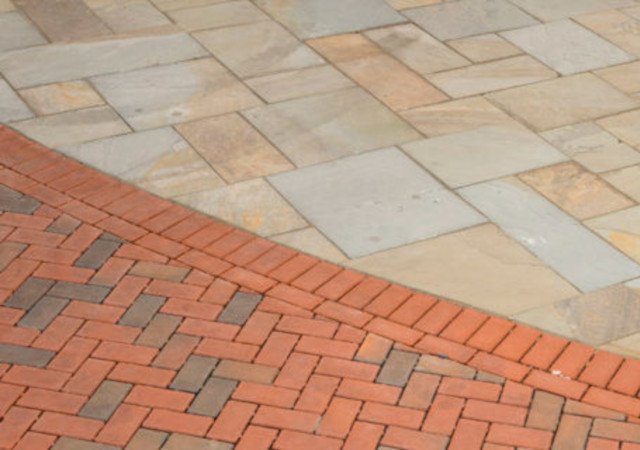Concrete Vs Paver Stones

Concrete and paver stones are two popular choices for creating durable and visually appealing outdoor surfaces. Each material has its own set of characteristics, advantages, and disadvantages. Here’s a comparison between concrete and paver stones to help you make an informed decision based on your specific needs:
Concrete:
Advantages:
- Affordability:
- Concrete is generally more cost-effective than many other paving materials.
- Versatility:
- Concrete can be poured into various shapes and forms, allowing for versatile design options.
- Ease of Installation:
- Installing a concrete surface is often faster and requires less labor compared to intricate paver installations.
- Smooth Surface:
- Concrete provides a smooth and even surface, making it suitable for activities like biking, rollerblading, or playing sports.
- Color Options:
- Concrete can be tinted or stained in various colors, providing customization options.
Disadvantages:
- Cracking:
- Concrete is susceptible to cracking, especially in areas with freeze-thaw cycles or poor soil conditions.
- Limited Repair Options:
- Repairing cracks in concrete can be challenging, and it may be difficult to achieve a seamless appearance.
- Heat Absorption:
- Concrete can absorb and retain heat, making the surface hot in warm weather.
- Stains:
- Concrete is prone to staining, especially from oil, grease, or other substances.
- Limited Aesthetics:
- While colored concrete is an option, it may not offer the same visual variety as paver stones.
Paver Stones:
Advantages:
- Durability:
- Paver stones are highly durable and resistant to cracking, making them suitable for high-traffic areas.
- Repairability:
- If a paver stone is damaged, it can be easily replaced without affecting the surrounding area.
- Aesthetic Variety:
- Paver stones come in a wide range of colors, shapes, and patterns, allowing for diverse design options.
- Flexibility:
- Pavers are flexible and can adjust to minor ground movement without cracking.
- Permeability:
- Permeable pavers allow water to pass through, reducing runoff and helping with water drainage.
Disadvantages:
- Cost:
- Paver stone installations are often more expensive than basic concrete installations.
- Installation Time:
- Installing paver stones can be more time-consuming, especially for intricate designs.
- Weed Growth:
- The joints between paver stones may allow for weed growth if not properly maintained.
- Maintenance:
- While pavers are easy to repair, they may require more regular maintenance, including joint sand replacement and weed control.
- Surface Unevenness:
- In some cases, the surface of paver installations may be uneven, making it less suitable for certain activities.
Conclusion:
The choice between concrete and paver stones depends on your priorities, budget, and the specific requirements of your project. Concrete is a more economical option with a smoother surface, while paver stones offer greater aesthetic variety, durability, and repairability. Consider factors such as climate, design preferences, and long-term maintenance when making your decision. Additionally, consulting with a landscaping professional can provide valuable insights based on your specific needs.




